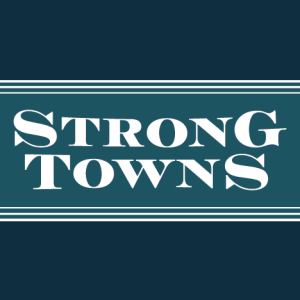
In July, fresh out of a particularly useless focus-group session of the type with which all planners and local government types are familiar, Strong Towns Founder and President Chuck Marohn wrote an article entitled “Most Public Engagement is Worthless.” It touched a nerve with many readers, and it prompted longtime friend of Strong Towns Ruben Anderson to write his own response post taking Chuck’s argument even further: “Most Public Engagement is Worse than Worthless.”
Chuck and Ruben have a friendship that for years has been characterized by this tendency to intellectually rhyme with each other. And in today’s episode of the Strong Towns Podcast, Chuck sits down with Ruben for a peripatetic, provocative conversation about the good life, the nature of human rationality, and how we use it—or fool ourselves into thinking we’re using it—to create the good life for ourselves.
Ruben was an early reader of Strong Towns and a source of early affirmation for Chuck Marohn’s vision, when it was encountering substantial local pushback in and around Chuck’s hometown of Brainerd, Minnesota. “I’ve spent a lot of my professional life being the guy in the room that everybody hates,” Ruben says. In his own career, he has pivoted from a degree in industrial design and a career designing supposedly environmentally-friendly consumer products to the more uncomfortable realization that a gentler form of consumption was not going to reduce ecological damage. He now consults on behavioral change in pursuit of sustainability.
Ruben and Chuck talk about the human tendency to want to apply a sort of systematic, reductionist, scientific rationality to problems that fundamentally defy that approach. Much as Newtonian physics describes many phenomena well, but breaks down at very small or very large scales, so too does rational problem solving via spreadsheets and pro-con tables. “So much of the harm that we do,” says Ruben, comes from not appreciating this mismatch between approach and desired outcome. “If what you’re doing doesn’t work, it doesn’t matter if you do it bigger, or faster, or harder: it’s not going to work. What you have to do is something different, not bigger.”
Too often lost amid the dominant narrative of our culture, which says that we are rational problem-solvers who tackle grand problems, is the art and science of “muddling through”—the subject of a famous essay by Charles Lindblom. Chuck posits that if we committed ourselves to this process—making modest experiments rather than trying to solve grand problems by anticipating every variable—we might actually make better decisions than we do when we grasp for efficiency and optimization.
Ruben also describes how, in his own life, he has “downshifted” away from the pursuit of efficiency. He is an avid gardener and raises animals, and says it’s not uncommon at the Anderson table to eat a meal where everything on the table was produced right there at home. That intimacy with the food we eat and the land we live off of, something that used to be a near-universal human experience—a century ago, the majority of the food eaten even in New York City came from within seven miles—has become one that is alien to most of us.
Chuck wonders what this perspective might hold for a person in New York or San Francisco or Vancouver today. How does it relate to the argument that dense cities with elaborate supply chains—you can’t easily grow all your own food in a Manhattan apartment—make the most efficient use of scarce resources and have the least ecological impact per capita? Is the efficiency we perceive in these systems worth it? Or does it comes at the cost of a fragility that might be invisible to us until things go wrong, much as the 2008 housing crisis exposed the fragility of the suburban development model?
Says Ruben, being part of an unsustainable system is like falling from an airplane at 30,000 feet. You know you’re falling, and you know what the eventual outcome will be. But “what happens in the comments section is people begin demanding to know when you’re going to hit the ground. Tell me the day I should pull my investment out of the stock market.”
More Episodes
Building Productive Places (and Showering them with Love)
 2019-10-02
2019-10-02
 7.8k
7.8k
Breaking Free of the Infrastructure Cult
 2019-10-01
2019-10-01
 8.9k
8.9k
Spooky Wisdom: What Lessons Should We Be Learning from How Our Ancestors Built Cities?
 2019-09-30
2019-09-30
 7.8k
7.8k
James Howard Kunstler: It's All Going to Have to Get Smaller
 2019-09-23
2019-09-23
 10.9k
10.9k
Tomas Sedlacek: A More Humane Economics
 2019-09-16
2019-09-16
 9.7k
9.7k
Patrick Deneen on Rediscovering Community and Rootedness
 2019-09-09
2019-09-09
 9.3k
9.3k
Ben Westhoff: Ferguson, Five Years Later
 2019-09-03
2019-09-03
 7.7k
7.7k
Ask Strong Towns #10: August 2019
 2019-08-20
2019-08-20
 8.4k
8.4k
Steve Mouzon: Living Traditions and the Original Green
 2019-08-12
2019-08-12
 8.6k
8.6k
The Dignity of Local Community: Chris Arnade
 2019-08-05
2019-08-05
 8.9k
8.9k
What Happens When Housing Becomes a Cash Crop?
 2019-07-29
2019-07-29
 9.7k
9.7k
Building Cities For Our Unconscious Brains: Ann Sussman on the Failings of Modern Architecture
 2019-07-22
2019-07-22
 10.5k
10.5k
Start Small, and Make a Lot of Noise: John Yung on Suburban Revitalization
 2019-07-01
2019-07-01
 9.4k
9.4k
Ask Strong Towns #9 (June 2019)
 2019-06-24
2019-06-24
 7.6k
7.6k
What Does it Take to Bring a City Back from the Brink?
 2019-06-10
2019-06-10
 10.2k
10.2k
Autonomous Vehicles Are Coming. Do We Have a Say in Who Benefits?
 2019-06-03
2019-06-03
 8.4k
8.4k
Ask Strong Towns: Celebrity Edition with Community-Conscious Developer Derek Avery
 2019-05-29
2019-05-29
 8.1k
8.1k
Why does Strong Towns put *so* much emphasis on its members—and why is that so unusual in the nonprofit world?
 2019-05-23
2019-05-23
 6.2k
6.2k
It's the Strong Towns Moment
 2019-05-20
2019-05-20
 6.7k
6.7k
Steve Nygren of Serenbe: "I Wanted to Build a Town, Not a Development"
 2019-05-13
2019-05-13
 9.6k
9.6k
Create your
podcast in
minutes
- Full-featured podcast site
- Unlimited storage and bandwidth
- Comprehensive podcast stats
- Distribute to Apple Podcasts, Spotify, and more
- Make money with your podcast
It is Free
You may also like
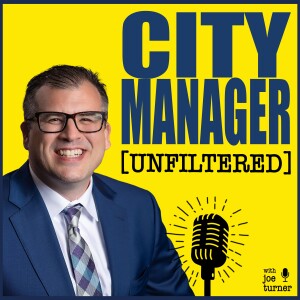
City Manager Unfiltered

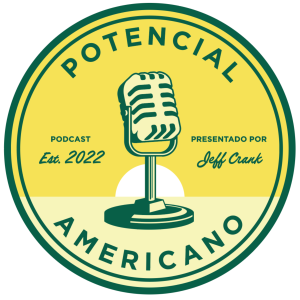
Potencial Americano


The ASIC Podcast

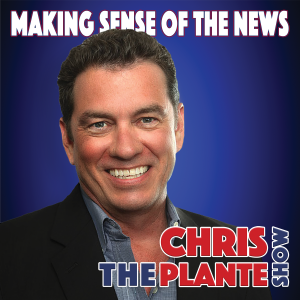
The Chris Plante Show

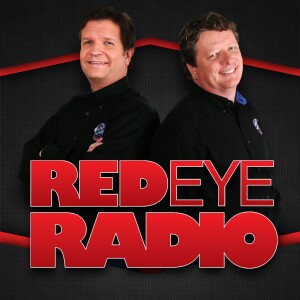
Red Eye Radio

- Privacy Policy
- Cookie Policy
- Terms of Use
- Consent Preferences
- Copyright © 2015-2024 Podbean.com


 iOS
iOS Android
Android